Gamedec aims to be cyberpunk Disco Elysium
Does it succeed? No, but it's better for trying.
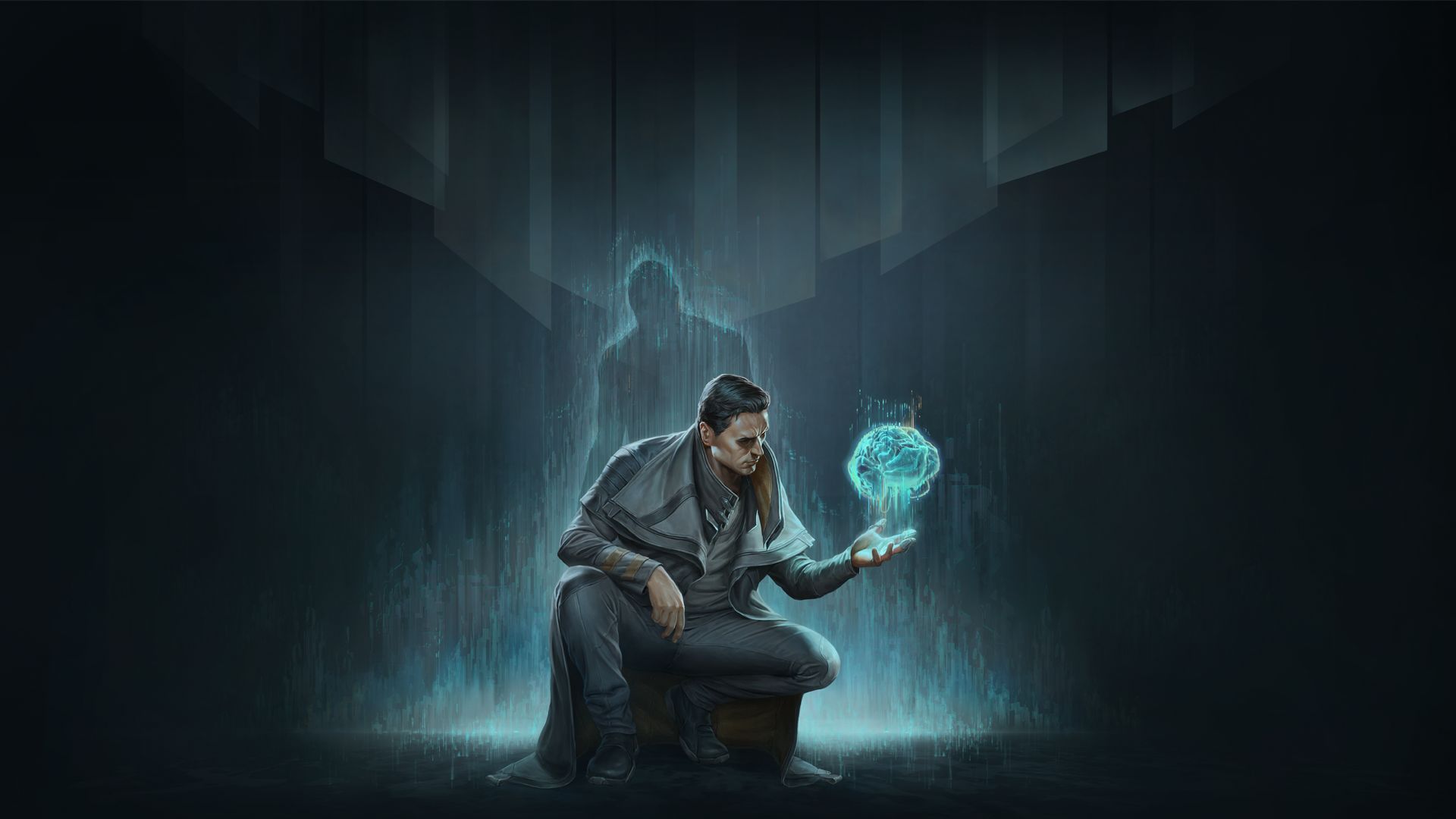
There are a variety of different worlds in 'virtualium', the VR cyberspace of Gamedec—like farming simulation Harvest Time, where players trade the crowded streets of near-future Warsaw for a pastoral dream. I'm a long way from Harvest Time, however. I'm in Twisted & Perverted, a seedy gameworld where everyone is either too busy trying to hook up with someone else to care about my questions, or too interested in trying to hook up with me to follow the thread of my conversation. I feel like I'm trapped in horny jail.
Gamedec is short for 'game detective', which is someone who privately investigates crimes committed in virtual realities like these. It's a job, and also the name of a game, based on a series of books by Polish author Marcin Przybyłek. It does have a very "translated from Polish" vibe. I think 'gamedec' sounds kind of silly, but then I used to think the same about 'witcher.'
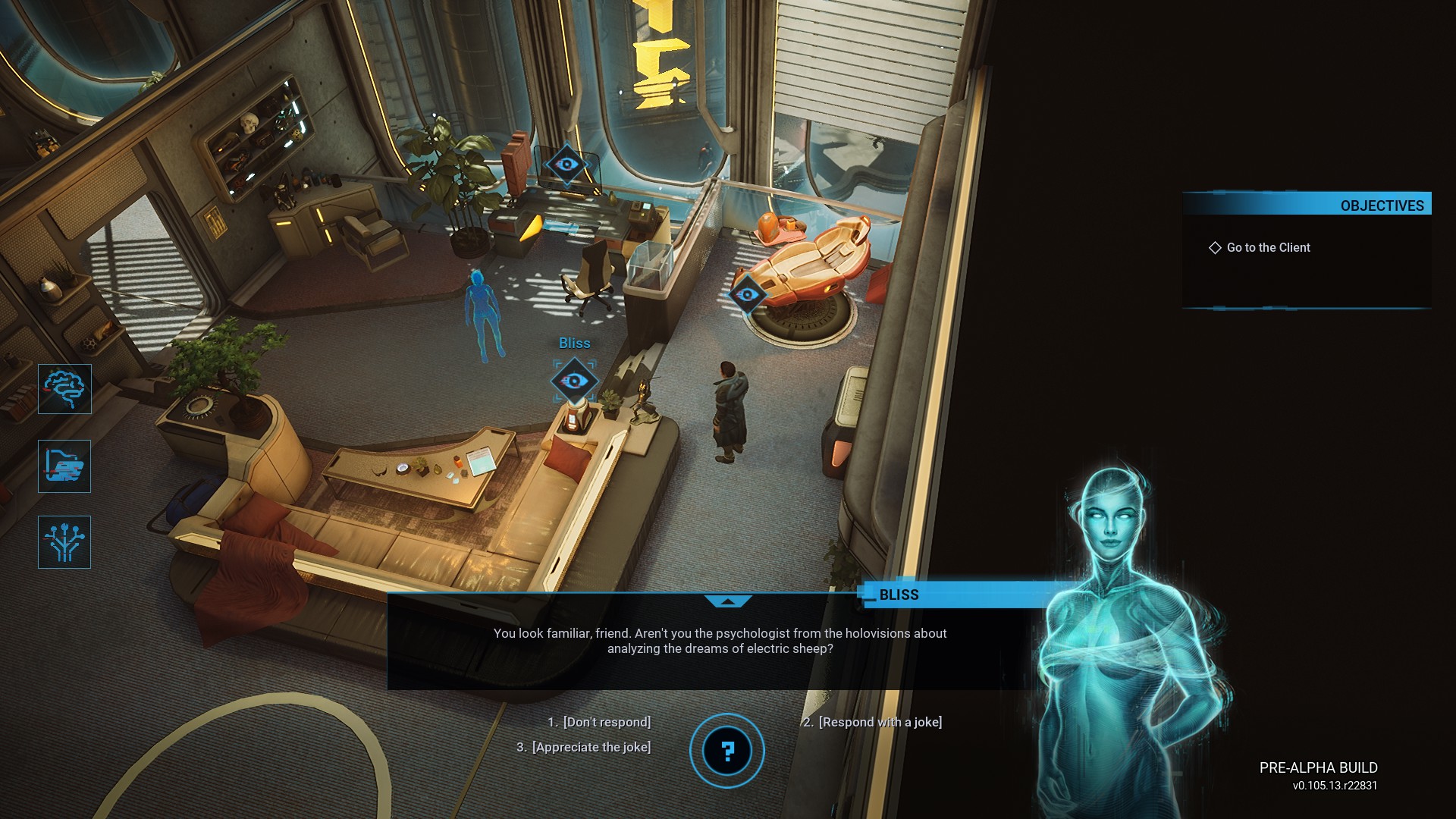
I'm playing a demo of Gamedec that contains one of several cases that will make up the finished game. It begins with a CEO who wants me to figure out why his teenage son is trapped in virtual reality. The kid's been strapped to a couch for hours, his vital signs hovering on the brink of danger. Unplugging him could be harmful, but what other way is there to log him off?
As I check the kid's health and examine the equipment (his name is Fredo Haggis by the way), his father presses me for an explanation. There's a limit to how much I can investigate before he forces me to arrive at a conclusion, and other scenes in Gamedec play out the same way. Impatient witnesses only answer a certain number of questions, software only tolerates a certain amount of probing. Being forced to make decisions under pressure makes you consider which approach is most likely to pay off, and raises the tension—which is important, because Gamedec doesn't have a combat system, the traditional fallback for RPGs wanting to make you feel threatened.
That's one of the ways it's like Disco Elysium. Another is that your personality and skills are directly connected. The skill tree looks like a brain, with abilities that can be unlocked by spending aspect points gained by making choices that reflect that aspect. To unlock medical skills I need to say and do things that demonstrate trust, compassion, and listening. To become a better hacker I need discretion, calm, and loneliness.
It's kind of the reverse of Disco Elysium, where each of your skills had a personality. Here, your personality traits determine your skills.
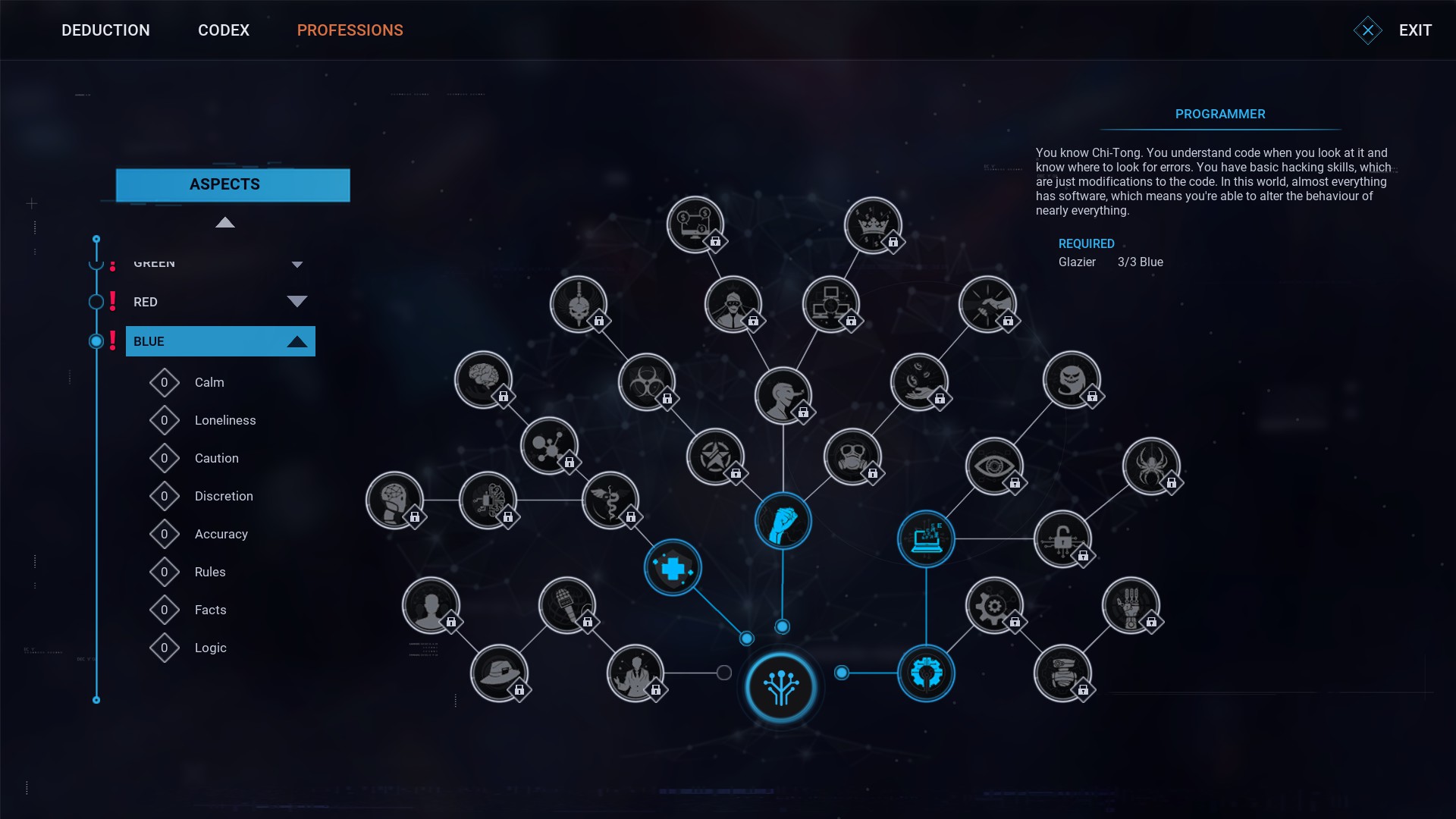
Another way Gamedec ramps up tension is with interrogations, special conversations where you need to convince an NPC to spill their secrets. Padlocks appear spread across a UI bar you start at the center of, representing those secrets. When I interrogate Fredo's scared friend Timmy I travel to the right along the bar as I reassure him, then veer left whenever I say something frightening. Pursue one or the other far enough and the padlocks open one by one as he spills his guts.
Keep up to date with the most important stories and the best deals, as picked by the PC Gamer team.
Later, when the case takes me to horny jail, an interrogation scene with a dominatrix swaps this format. She's in charge of the conversation, but by choosing responses that follow either a submissive or combative line far enough, I can get her to open up.
Gamedec also gamifies your investigation with its deductions screen, where questions about the next step of the case are represented as connected circles. Discovered clues fill gaps next to the relevant questions, but I don't need to find all the clues to answer the questions posed—once I've got enough I select an answer, which opens up certain dialogue options with witnesses. There's no way to go back and change your mind about a deduction if later clues contradict it, meaning some conversation options you might want to ask will be grayed-out forever if you leap to the wrong conclusion.
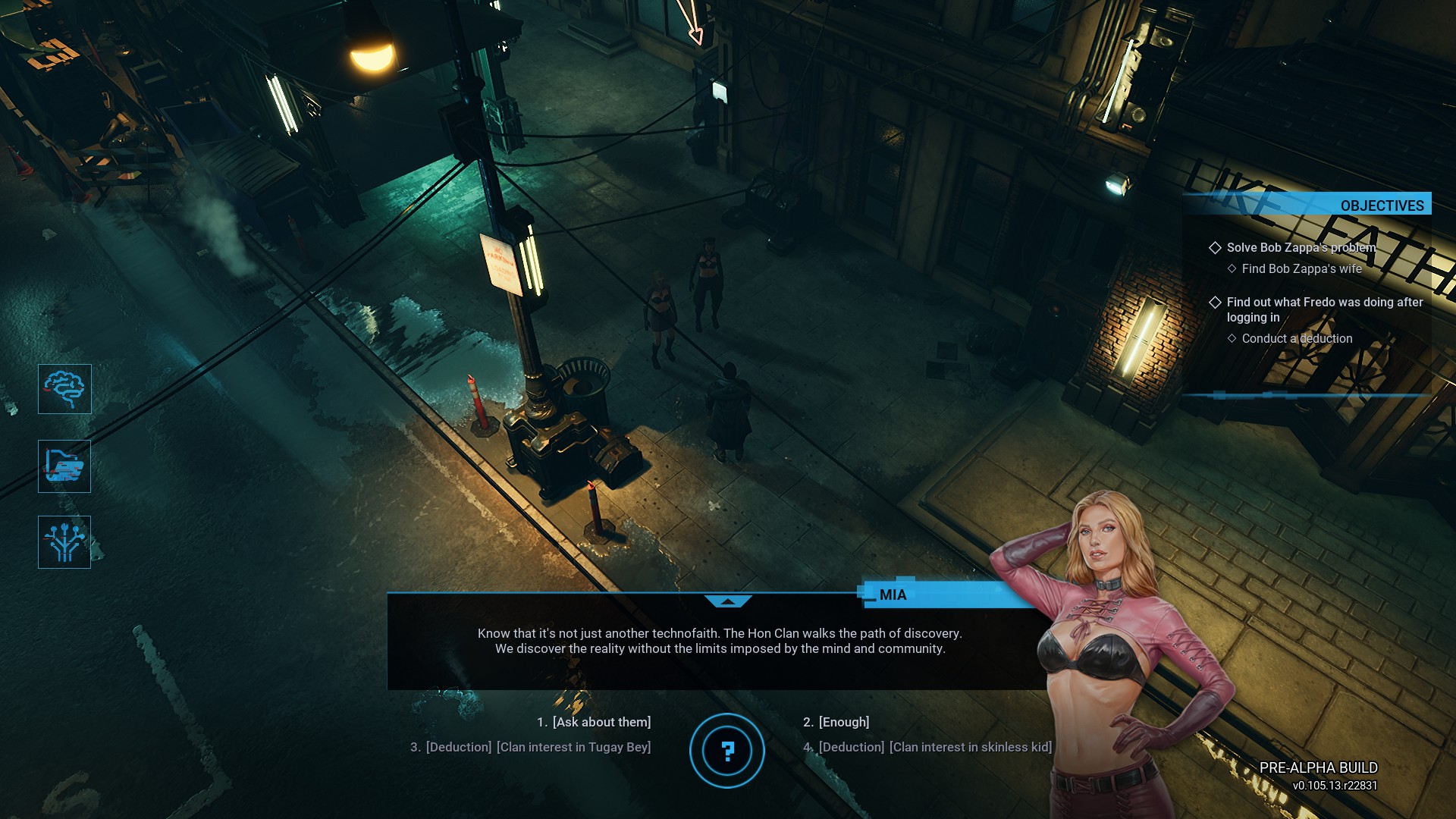
Gamedec is yet another cyberpunk videogame where you play the authority figure who cracks down on the hackers and punks rather than vice versa. It's also another cyberpunk game where the future brings shocking societal changes except for when it comes to beauty standards for women, which somehow regress several decades. Every woman's look is basically "1980s Playmate but with a tattoo maybe" and the AI assistant is a naked blue lady (the option to select a male AI is unavailable in the demo). Perhaps the less kinky virtual worlds will be more original.
While it has superficial similarities to Disco Elysium, the writing is plain rather than poetic, and sometimes grammatically clumsy. It's suddenly on point, however, when the topic is gaming. My shabby detective has a collection of expensive spaceships he can't afford in an unfinished game called Void Stars, and when I unearth the king of the online trolls he sends me on a parody of fetch quests. When Gamedec is about games, suddenly the writing becomes arch and pointed, benefiting from familiarity. Part of the investigation involves figuring out whether a hack inserted in this gameworld is based on exploiting an existing bug or running an external cheat program, a detail I can't imagine mattering if this were a TV show rather than a game.
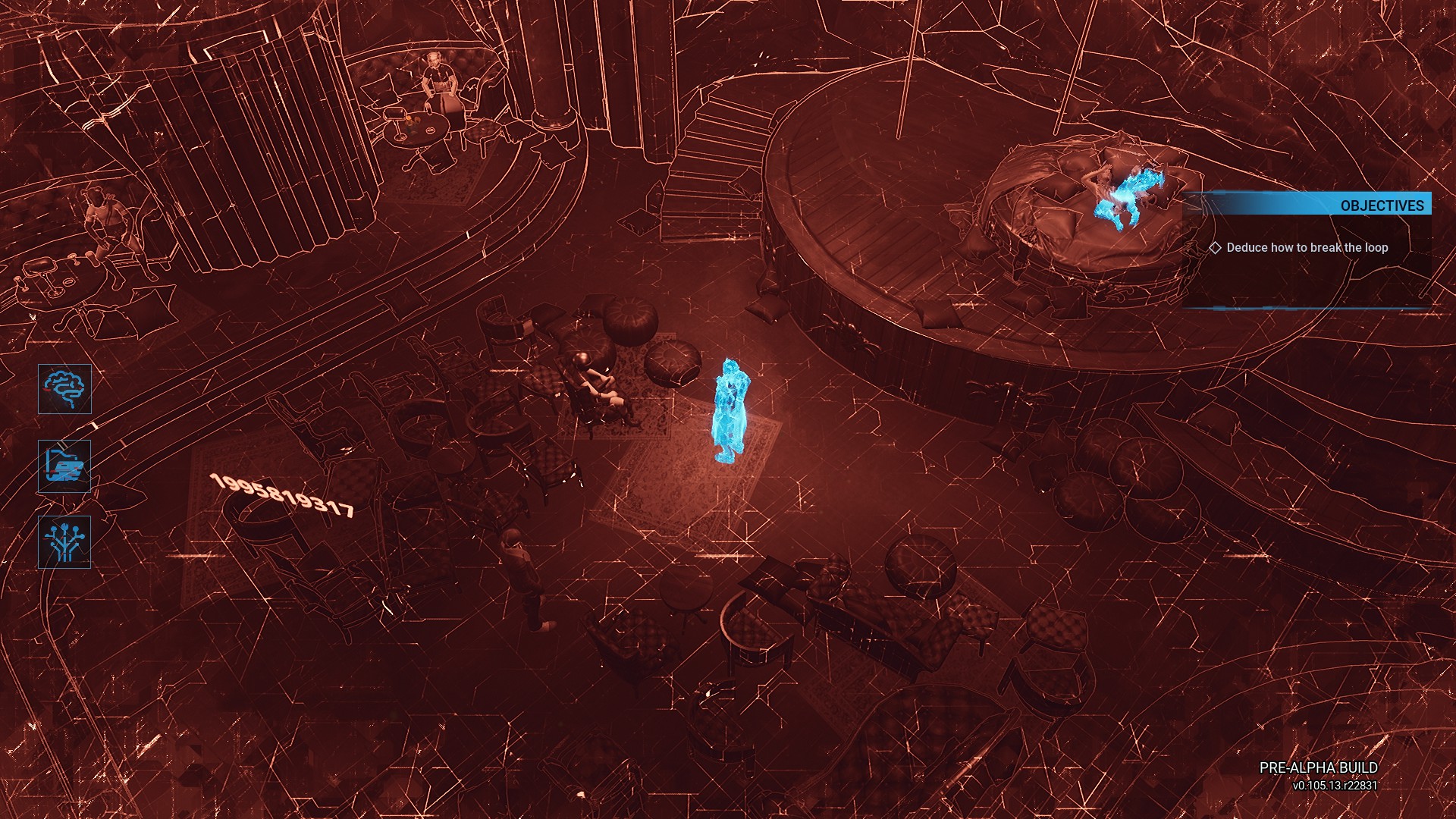
It's also the work of designers who value reactive NPCs and branching storylines. In a playthrough where I didn't find the Troll King I deduced the identity of a cult leader who had the same information, and rather than carefully rescuing a woman trapped in VR I riskily yanked off her headset, which left her in a coma. The slideshow epilogue at the end of the case played out very differently each time.
My time in Twisted & Perverted has exposed a fetish of mine, and it's games with slideshows that tell you what happened to every faction or settlement or whatever. For that I'll apparently forgive a fair amount of weakness in writing and how it handles the themes it explores.
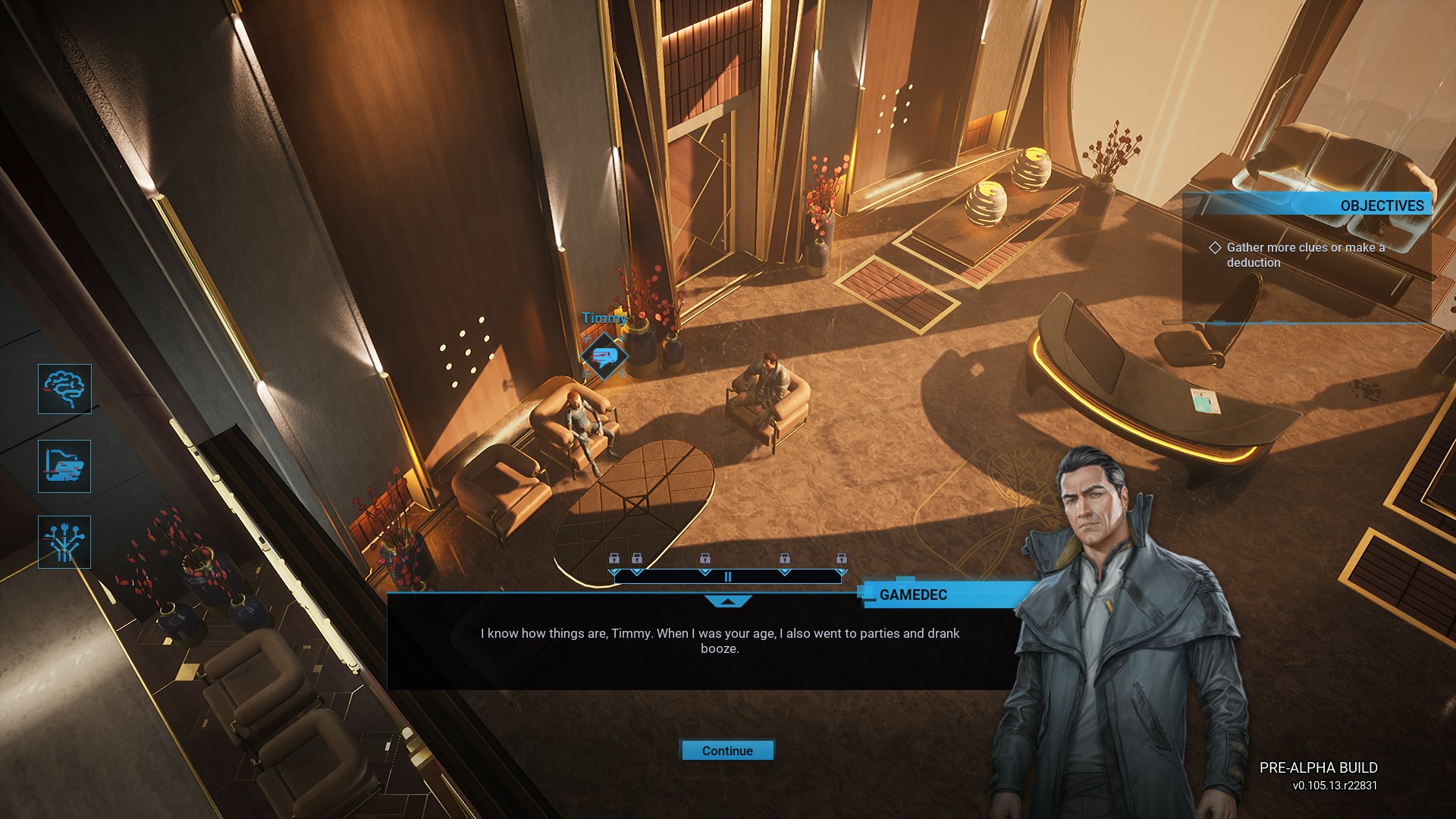
In all honesty, Gamedec is the kind of 7/10 RPG small European studios specialize in. It's just one that hasn't bolted on a combat system to distract from its better qualities. Combat adds friction to narrative games, but it often becomes a crutch. Plot scene, fight scene, exploration zone, fight scene—a pattern that becomes familiar, and then contemptible. "Oh hey, this room has waist-high walls in it, guess I'm about to be ambushed again."
It would be nice if the lasting impact of Disco Elysium was an explosion of fanciful games with writing better than most novels. But if it also meant the studios that make Eurojank RPGs were inspired to concentrate more on what they're good at—reactivity and creative systems that suit the genre, rather than boss battles and endless loot—then that would be nice too.
Gamedec is aiming for a 2020 release on Steam and GOG. A demo will be available on Steam as part of PAX Online from September 12 to September 20.

Jody's first computer was a Commodore 64, so he remembers having to use a code wheel to play Pool of Radiance. A former music journalist who interviewed everyone from Giorgio Moroder to Trent Reznor, Jody also co-hosted Australia's first radio show about videogames, Zed Games. He's written for Rock Paper Shotgun, The Big Issue, GamesRadar, Zam, Glixel, Five Out of Ten Magazine, and Playboy.com, whose cheques with the bunny logo made for fun conversations at the bank. Jody's first article for PC Gamer was about the audio of Alien Isolation, published in 2015, and since then he's written about why Silent Hill belongs on PC, why Recettear: An Item Shop's Tale is the best fantasy shopkeeper tycoon game, and how weird Lost Ark can get. Jody edited PC Gamer Indie from 2017 to 2018, and he eventually lived up to his promise to play every Warhammer videogame.

